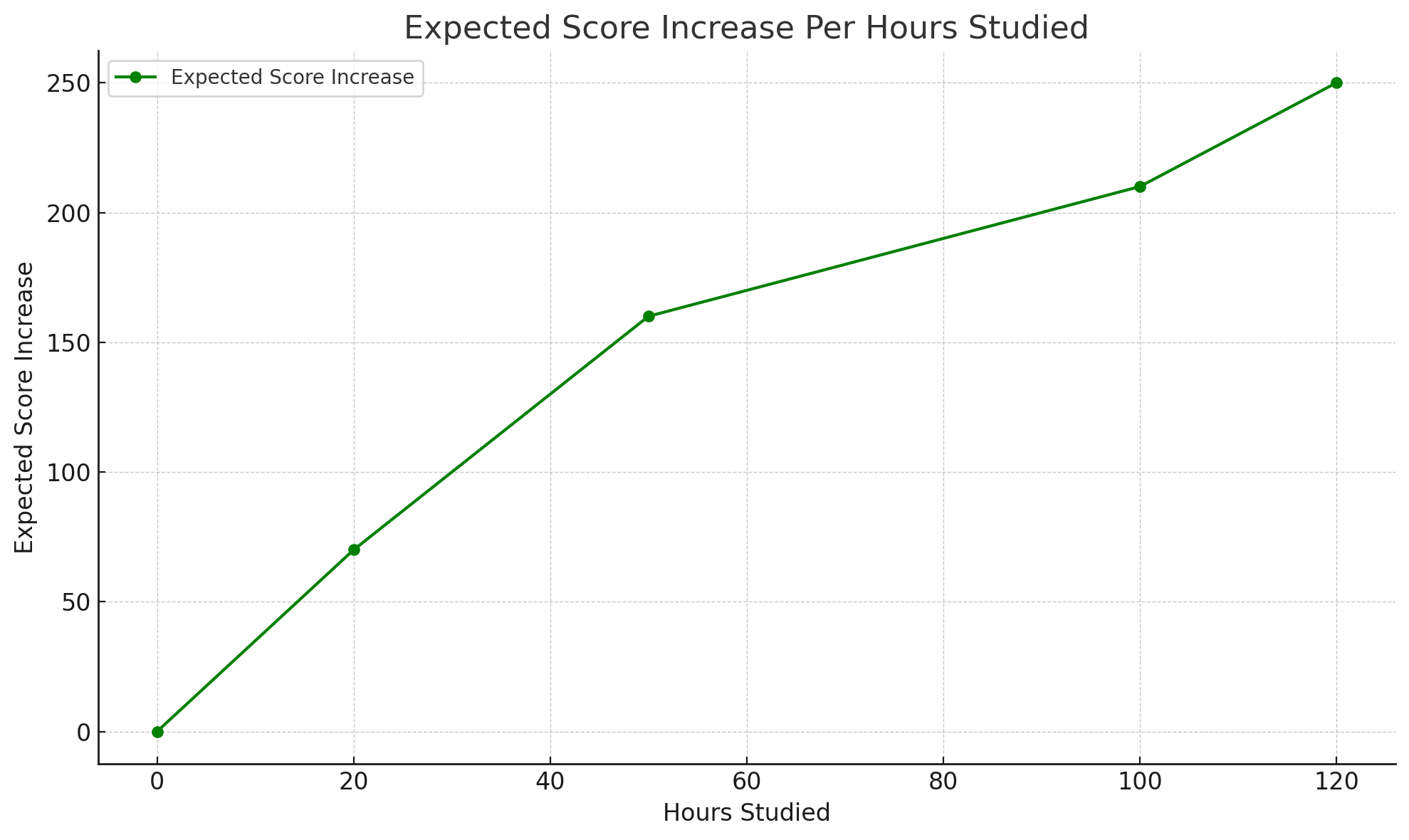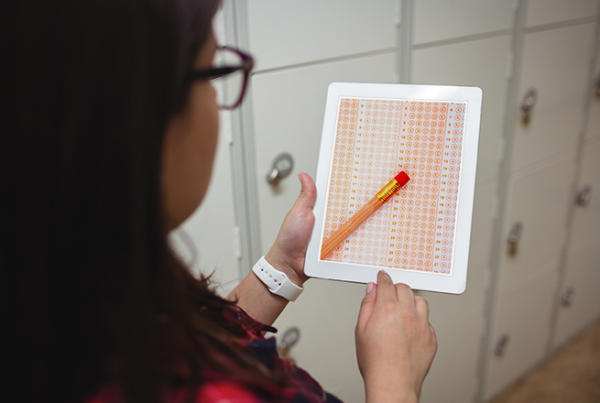 The SAT is a significant milestone in any high school student’s academic journey. As the gateway to numerous educational opportunities, this test must be given the time and preparation it deserves. But a question that often plagues students and parents alike is: When should you start studying for the SAT? Let’s delve deep to understand the ideal timeline and the benefits of starting early.
The SAT is a significant milestone in any high school student’s academic journey. As the gateway to numerous educational opportunities, this test must be given the time and preparation it deserves. But a question that often plagues students and parents alike is: When should you start studying for the SAT? Let’s delve deep to understand the ideal timeline and the benefits of starting early.
The Early Bird Catches the Worm
Bespoke Education’s data reveals that a significant percentage of students sit for their first SAT during the spring of their junior year. But the SAT isn’t just another school exam; it’s a comprehensive assessment of your high school education. So starting early, preferably by the spring of your sophomore year, gives you ample time to familiarize yourself with the test format, identify your strengths and weaknesses, and develop and pursue a targeted study plan that coordinates with your academic schedule. In line with this, the most effective preparation schedule for all standardized tests, including the new Digital SAT (DSAT), suggests that students should kick off their preparation journey in the spring of their sophomore year.
To prepare successfully, begin by using initial practice exams to immerse yourself in the details of the test and to evaluate your current standing. Here’s how:
- Getting Familiar with the Test: Familiarity is about more than just knowing the order of the sections. Use your practice tests to dive deep into the types of questions, the scoring system, the time limits, and how you feel taking it. This will help in strategizing your study plan and test-taking approach.
- Get a Baseline Score: Before you embark on a rigorous study regimen, use your first practice test to gauge your current standing. By taking digital SAT practice tests early on, you can ascertain your baseline score, which will serve as a benchmark for tracking your progress.
Because it gives you time to make and follow a plan, this early phase emerges as the linchpin in the SAT preparation timeline. Launching your preparation before your junior year not only furnishes you with a competitive advantage but also offers the flexibility of retaking the test in the future, ensuring you will be armed with your peak score when college application deadlines loom.
The Power of Consistency
 Although it is important to know when to start studying for the SAT, it is even more important to be consistent. With regular effort and the right resources, achieving your target SAT score becomes an attainable feat.
Although it is important to know when to start studying for the SAT, it is even more important to be consistent. With regular effort and the right resources, achieving your target SAT score becomes an attainable feat.
The SAT isn’t just another school exam: it tests students on material learned in Reading, Writing, and Math throughout their schooling through to the spring of Junior year (Calculus is not included on the test). To excel students will need to review material they learned years ago, learn new material, study everything, and internalize new thinking, test-taking strategies, and habits. The range of content covered and the kind of new thinking required demands consistent effort over an extended period of time.
Dedicated Study Time
To truly excel at the SAT, it’s not just about the number of hours you invest but also about the quality and content of your preparation. As you transition from getting familiar with the test and benchmarking your abilities to truly understanding the nuances of the test and how you approach it, it’s crucial to delve into a structured and tailored study plan
On average, students spend 40 to 100 hours preparing for the SAT. This includes time in sessions or class, and time spent on practice tests and homework. However, the ideal time frame isn’t uniform for everyone. Here’s how to gauge how much time you might need:
- Baseline and Target Score: Start by taking a diagnostic test to understand your current standing. If your baseline score is considerably lower than your target score, you might need to invest more hours. For instance, if you aim to improve by 50 points, 20 hours of dedicated preparation time might suffice. But for a 200-point leap, you’d be looking at 80 to 100 hours or more.
- Daily Commitment: Your daily study schedule plays a crucial role in determining the overall duration. If you can average an hour daily, you will reap the rewards faster than if you only think about the SAT once a week or once a month: when you return to your efforts after less time has passed, it takes less work to get back up to speed.
- Integrated Learning: Leveraging varied resources like those from Bespoke Education can streamline your study process. With practice tests, opportunities for reflective review, tailored guidance and strategic study plans, you might find that your efficiency improves, potentially reducing the total hours you need. Studying the same way all the time is not as effective.
- Retakes & Continuous Improvement: Remember, many students opt for multiple SAT attempts. If you start early – by the end of your sophomore year – you will have the flexibility to take the test more than once, refining your strategy each time based on feedback from your previous attempts.
While the average preparation time is around 40 to 100 hours, the exact number for you hinges on various factors. It’s essential to adopt a tailored approach, aligning your preparation with your unique needs and goals.
Why Mock Tests are Indispensable
One of the most effective components of SAT preparation is taking regular full-length mock digital SAT tests. The best mock tests are meticulously designed to mirror the adaptive structure, content, and rigor of the actual Digital SAT, ensuring that students gain an authentic test-taking experience.
To optimize SAT preparation and simulate the real test experience, it is indispensable to regularly take full-length mock digital SATs that most accurately match the real DSAT. Here’s why:
- Familiarity with Test Format: The Digital SAT has a unique format and pacing. Regular mock tests help students become accustomed to the time constraints and the flow from module to module and section to section. This familiarity will lower cognitive load and reduce anxiety on the test day.
- Performance Analysis: After every mock test, students receive detailed feedback on their performance. This includes breakdowns of scores by section and question category, summaries of time per question, insights into question types that posed challenges, and areas where students excelled.
- Identify Knowledge Gaps: Mock test results identify specific content areas where students may be struggling. Whether it’s a particular math concept or a reading comprehension challenge, identifying these gaps early allows for targeted study and review.
- Stamina Building: The DSAT is a lengthy exam, requiring sustained concentration. Very few students are initially ready to focus intently for more than two hours in one sitting. Regular mock tests condition students to maintain focus and performance over an extended period of time.
- Boost Confidence: As students improve in their mock test scores, they see their preparation work paying off, and they gain confidence in their abilities. This can provide a significant morale boost leading up to the actual test.
- Test-Day Strategy Refinement: Mock tests provide an opportunity to practice and refine essential test-taking strategies like time management, question prioritization, answer elimination, educated guessing, and calculator use.
At Bespoke Education, we’ve observed that students who consistently incorporate Digital SAT mock tests into their preparation tend to demonstrate a more profound understanding of the exam format and to exhibit improved time management skills. Their performance often reflects a deeper mastery of the content and heightened test-day readiness.
Benefits of Starting Early / Why Timing Matters in SAT® Prep
 Remember, in the marathon of academic excellence, it’s not just about the distance covered but also about the pace, planning, and perseverance. When pondering when you should start studying for the SAT, consider the numerous benefits of an early commencement. “A timely start yields fruitful results,” especially in the realm of SAT preparation. Here are the compelling reasons to initiate your SAT journey sooner rather than later:
Remember, in the marathon of academic excellence, it’s not just about the distance covered but also about the pace, planning, and perseverance. When pondering when you should start studying for the SAT, consider the numerous benefits of an early commencement. “A timely start yields fruitful results,” especially in the realm of SAT preparation. Here are the compelling reasons to initiate your SAT journey sooner rather than later:
- Mastery Over Concepts: The SAT is not about rote memorization; it tests the application of concepts. Starting early allows students to delve deep into each section, domain, and question type to understand the nuances of the concepts, and to master the skills required to apply them. This thorough understanding can be the difference between a good score and a great one.
- Stress Reduction: An elongated preparation period naturally reduces the pressure. Students have the luxury to pace themselves, ensuring they don’t burn out or face undue stress to “do it all” or to “catch up” as the test day approaches.
- Iterative Learning: An early start provides ample time for revision cycles. This iterative approach means students can revisit topics multiple times, reinforcing knowledge and building confidence.
- Harmonized Schedule: Your junior and senior years of high school are often packed with academic commitments, extracurricular activities, and the college application process. Initiating SAT prep early ensures that you can spread out your study sessions, avoiding clashes with other essential commitments.
- Quality over Quantity: Starting early means students can opt for shorter, more focused study sessions, which are much more productive and effective than prolonged cramming sessions.
- Holistic Development: An early start to SAT prep ensures that students don’t have to sideline other crucial aspects of their high school journey, be it sports, arts, or community service. This holistic development is often appreciated by college admissions committees.
Flexibility for Retakes: The Safety Net
Starting early offers a multitude of benefits, one of the most significant being the flexibility for retakes. Many students take the real SAT 2-3 times before achieving their best score. Having multiple attempts at the SAT can be a game-changer, not just for boosting scores but for personal growth and learning.
The Value of Multiple SAT® Attempts
- Data-Driven Insights: A sizable portion of students opt for multiple SAT attempts. Starting early offers the flexibility to retake the test without the pressure of imminent college application deadlines.
- Learning from Mistakes: A first SAT attempt can serve as a diagnostic tool and a correction to the student’s course of study. Students can analyze their performance, understand their mistakes, and then adjust their preparation strategies for subsequent attempts.
- Optimal Scoring: With the option for retakes, students can aim to achieve their best possible score, maximizing their chances of admission to their dream colleges. Many colleges use a “Super Score” approach for the SAT. This means they consider the highest section scores across all the dates you took the SAT. For instance, if you scored higher in Math during your first attempt and higher in Reading & Writing during your second, colleges would combine these highest scores to form your Super Score.
It is worth noting that not every college admissions office uses Super Scores. The policy should always be confirmed on a school-by-school basis. In any case, allowing time for retakes increases a student’s scoring potential significantly.
* Compiled from multiple public sources
Expected Score Increase Per Hours Studied
Understanding the correlation between hours studied and the expected score increase can provide students with a clearer roadmap for their SAT preparation. Let’s delve into what research and experience suggest about this relationship.
The Baseline:
Before diving into the numbers, it’s crucial to recognize that everyone starts at a different baseline. Two students might both study for 50 hours, but if one starts with a 1200 and the other with a 1400, their potential score increases could differ.
Initial Hours: Building Foundations
- 0-20 Hours of Preparation:
- Expected increase: 30-70 points
- In the initial hours, students typically familiarize themselves with the exam format and address glaring knowledge gaps. The score jumps here are often due to overcoming fundamental misunderstandings or mastering key test-taking strategies.
Intermediate Hours: Refining Skills
- 20-50 Hours of Preparation:
- Expected increase: Additional 40-90 points (cumulative increase of 70-160 points)
- During this phase, students start refining their skills, practicing more complex and esoteric problems and content, and focusing on timing. They often begin to see more consistent improvements in mock test scores.
Advanced Hours: Perfecting Performance
- 50-100 Hours of Preparation:
- Expected increase: Additional 20-50 points (cumulative increase of 90-210 or more points)
- As students approach the 100-hour mark, the score increases might begin to taper off. At this advanced stage, they’re typically working on perfecting their performance, addressing specific weaknesses, and building endurance.
Beyond 100 hours:
- 100+ Hours of Preparation:
- Expected increase: Varies widely (typically an additional 10-40 points)
- Beyond the 100-hour mark, improvements can become more incremental. While some students continue to see gains, others might hit a plateau. It’s crucial, at this stage, to focus on targeted practice, analyze mock test performances rigorously, and seek expert guidance if available. Students should start preparing for the SAT early if they expect to study 100+ hours.
Key Takeaways:
- Diminishing Returns: Like many learning curves, SAT preparation can exhibit a principle of diminishing returns. The initial hours often bring about the most dramatic score jumps, but as students study more, each additional hour might yield smaller score increases. That said, students seeking entry into top-tier universities may want to invest the extra time.
- Individual Variation: These are general estimates, and individual results can vary. Factors such as the quality of study materials, the effectiveness of study techniques, personal motivation, prior academic background and the student’s adherence to a homework schedule can all play a role.
- Quality Over Quantity: It’s not just about the hours put in, but how they’re spent. Focused, effective study sessions can yield better results than aimless hours of repetition.
Students aiming for significant score improvements should consider integrating structured study plans, high-quality resources, and, if possible, expert guidance to maximize the effectiveness of their preparation.
Start Studying Today With DSAT Practice Tests
Getting ready for the SAT is a significant endeavor, one that requires dedication, strategy, focused SAT Preparation, and consistent effort. We have discussed “When should you start studying for the SAT?” and as the data shows, the earlier you start and the more time you invest in your preparation, the greater the potential rewards in terms of score improvements. However, it’s not just about the quantity of hours, but also the quality of those hours.
That’s where Bespoke Education comes into play. Our digital SAT practice tests and online testing platform are meticulously designed to emulate the real testing experience, giving students a competitive edge. Many test writers out there today are rushing to market by repurposing old out-of-date practice problems, writing tests without understanding the concepts being tested, and using AI to mass-produce inaccurate questions. Here at Bespoke our test prep writers have years of experience, have studied the newest tests fanatically, and have written their questions to the highest standard of fidelity. With our tests, you can most accurately pinpoint areas of improvement, tailor your study strategies, and ultimately increase your chances of achieving your target score. Take action now: Don’t leave your SAT preparation to chance. Contact us today to get started.




